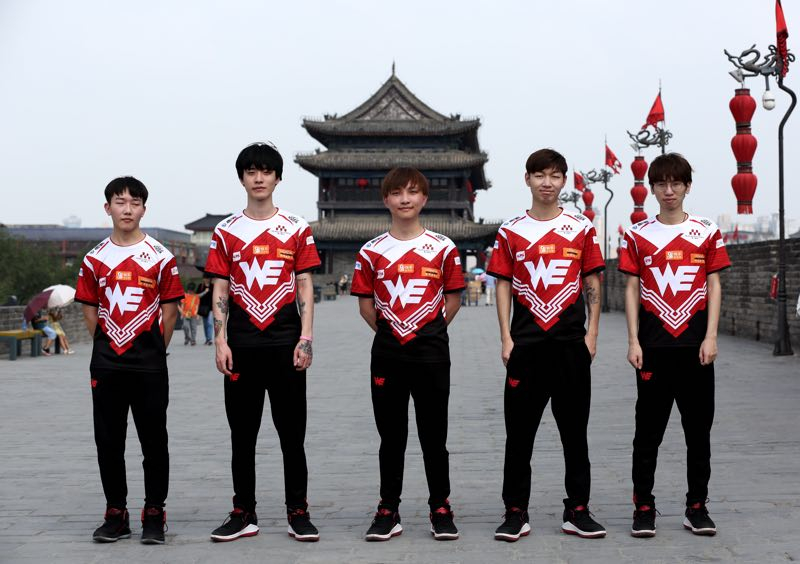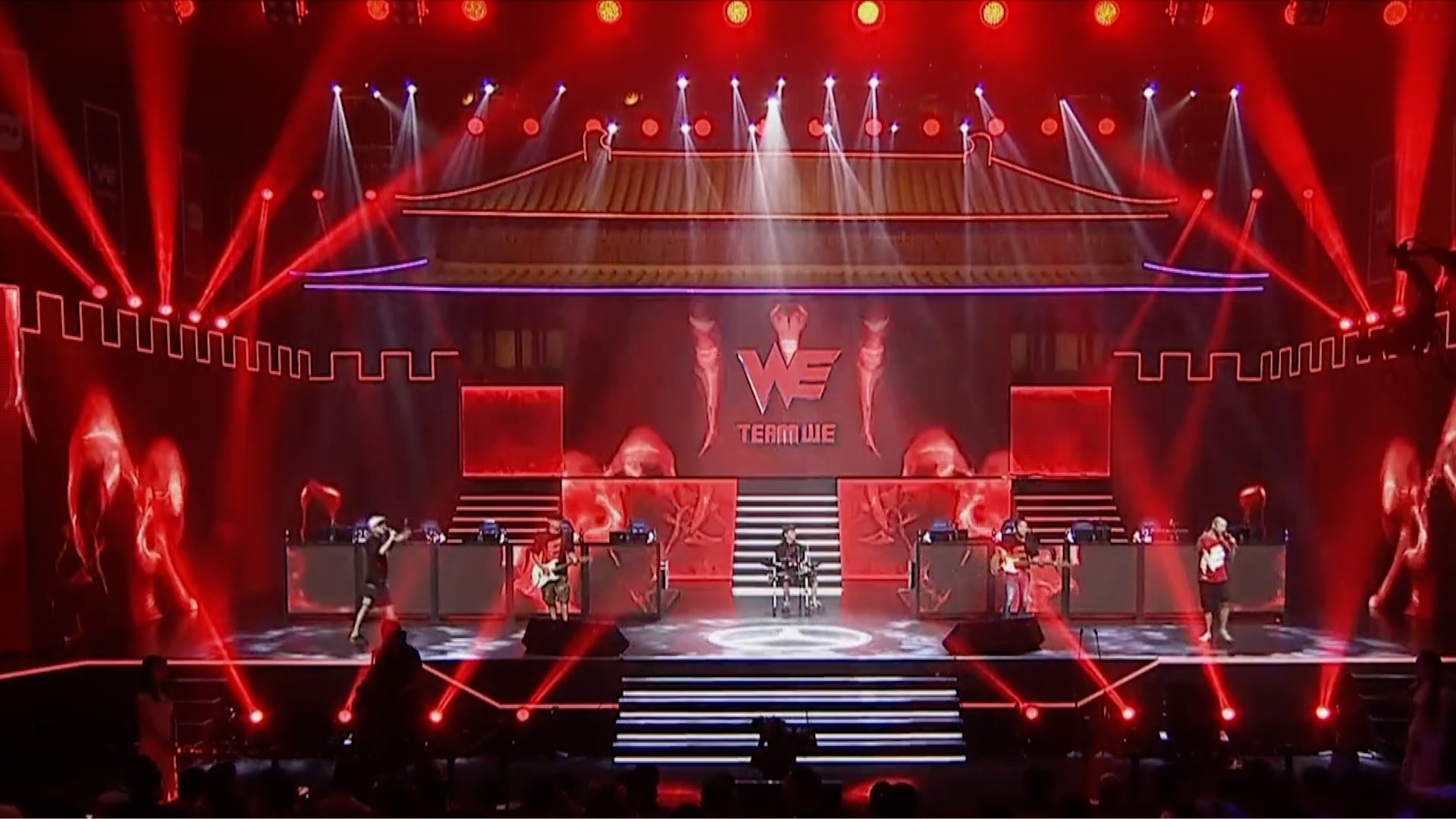
Sports
17:24, 11-Jan-2019
Learning from the NBA: Esports clubs set up home bases
Updated
17:01, 14-Jan-2019
Laura Schmitt and Luo Shanshan
00:55

The city of Xi'an evokes images of ancient architecture, the terracotta warriors, and its historic city wall. Few people would associate the ancient capital with something as modern as esports. Yet in the summer, one of China's most established esports clubs, WE, made Xi'an its home.
Most of China's esports clubs used to be based in Shanghai. But a recent trend has seen some of them making the move to other cities, even building specialist arenas there to host games. The advantages for both players and fans are obvious. As Xi Ye, a member of Team WE, explains: "If you have no home base, all your matches are away games at other people's venues. It's very tiring. If you have your own home base you'll also have your own fans cheering you on. There's a sense of belonging."

Team WE players /CGTN Photo
Team WE players /CGTN Photo
Leo Lin is Riot Games' country manager for China and organizer of the LPL – the professional league for computer game League of Legends. He says that more traditional sports were the inspiration for the concept of a home base.
"In terms of promoting the industry's development, we actually learned a lot from traditional sports, such as soccer and basketball, the Premier League and NBA," he says. "We launched some initiatives last year – building alliances, constructing home venues. Previously, all competitions were played in one city – Shanghai. Now we can go to cities across the country, which allows local fans and e-sports lovers to experience competitions."
Setting up in Xi'an: An unexpected welcome
King is a founder-member of Team WE. The former pro gamer was part of the first generation of Chinese players who established competitive gaming as a credible sport in China. He says that the announcement of the move to Xi'an was initially met with surprise in the gaming community. "At first, the fans thought that Xi'an was too far away and quite backward," he says. 'Why go to Xi'an?' they'd ask."
The reason, King says, is the city's fairly central location within the country, its accessibility, and its rapid economic development. The team's arrival has been greeted warmly. Many fans come by rail or plane specifically to watch them play in their new, custom-built arena. Matches are broadcast live online for fans who cannot make it.
00:45

WE's move to Xi'an hasn't only been welcomed by fans. The local government has been enthusiastic about developing esports; the arrival of King and his team was marked by a spectacular official welcoming ceremony.
Han Jiawei, director of the Culture Industry Department of the city's Qujiang district, says the local authorities have plans to make Xi'an a major esports hub.
"We have been planning the construction of two professional esports parks, with a total area of more than 400,000 square meters, since last year," he says. "As part of the plan, we will build four professional and comprehensive esports venues, which can meet the operational needs of all esports events, as well as daily training needs."
He says the government's enthusiasm is driven by the city's need to find new economic drivers. Young people are the main target audience for esports, and with a student population of 1.2 million, Xi'an naturally sees embracing the sport as a logical choice.
"The cultural industry is the main industry driving the city's development, but it doesn't develop at high speed," says Han. "Our entire city requires an infusion of new industries to revitalize it. From an economic point of view, esports clubs and related companies also promote the prosperity of other businesses in the area. So its benefits and its reach far transcend the industry itself."
In just three years of developing an esports infrastructure, the industry has grown to such an extent that it now accounts for over a third of Qujian's corporate revenue.
Other cities are following Xi'an's example. Even somewhere as remote as Chengdu in the southwest now has its own esports team. It seems only a matter of time before cities across China are as closely associated with their esports clubs, as they are with their local soccer and basketball teams.

SITEMAP
Copyright © 2018 CGTN. Beijing ICP prepared NO.16065310-3
Copyright © 2018 CGTN. Beijing ICP prepared NO.16065310-3